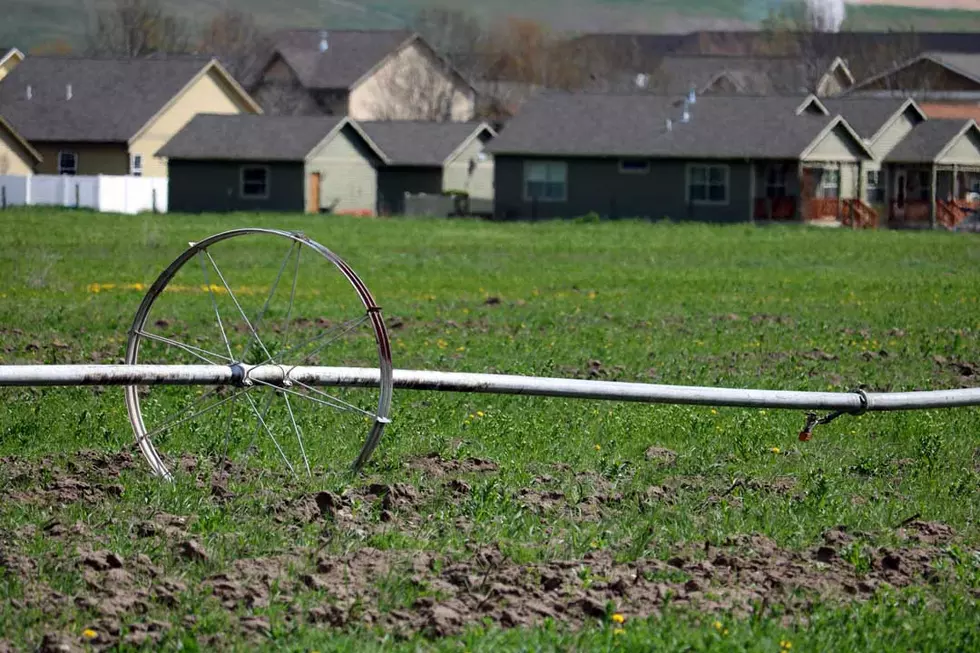
Viewpoint: Support Ten Spoon conservation easement, local food
Neva Hassanein
Bravo, Andy Sponseller and Connie Poten of Ten Spoon Winery! The quality farmland you have generously offered to preserve for current and future generations is a wonderful gift. Thank you.
Connie and Andy propose to donate the value of their development rights by putting a conservation easement on their 21-acre farm in the Rattlesnake, protecting it forever.
Given our housing crisis and proper commitment to making the city denser, some wonder if it makes sense to permanently protect this land rather than build houses on it, because flat, well-drained, prime soil – like Ten Spoon – is highly sought after for development. Indeed, for decades, development has invaded farmland, resulting in considerable losses of this precious resource, here and across the nation.
That’s why proponents made protecting farmland (and river corridors) central arguments for passage of the 2018 open space bond measure. The measure passed overwhelmingly, and it will contribute funding for the conservation of Ten Spoon. If you look at the bond’s purpose statement, this proposal checks all the boxes. Agricultural land. Wildlife habitat. Scenic views. Public access through a new trail. Check, check, check, check.
Missoula has protected a lot of open space, mostly on the mountains for recreation and the viewshed. Yet, despite a prospering local food economy, we have not protected much productive agricultural land in and near the city.
Can we design our community to meet multiple, critical human needs – not only safe, attainable housing, but also abundant local food, clean water, and healthy air? Can we share this place with non-human nature? I believe we can, but we need creativity and a hard-headed look at the various challenges our community faces in a fast-changing world.
Even as we create a denser Missoula to accommodate population growth, we can also make local food production the warp and woof of our community’s fabric. By weaving productive farms and food businesses into the community, we will be better able to withstand the stresses of climate change; adapt to supply chains disrupted by events like global pandemics and war; and respond to the distant power of multinational agribusinesses controlling today’s dominant food system. Producing and distributing more local food can ensure our community is vibrant, secure, and resilient.
What’s more, not every place is appropriate for dense infill, and that’s the case at Ten Spoon. As we grow, let’s balance the need for densification with the very real public safety concerns posed by wildfire. Cramming more and more houses into creek neighborhoods, like the Rattlesnake, with limited egress during a fire, we risk the lives of residents and emergency personnel.
Where, then, should we build to accommodate what feels like inevitable growth?
Fortunately, our public officials have worked hard over the last several years to create an opportunity for 6,000 new housing units in the Sx͏ʷtpqyen area, west of Reserve Street. As a longtime farmland protection advocate, it pains me a great deal to see more incursion on farmland. Still, I supported Sx͏ʷtpqyen because the plans codify a vision for whole neighborhoods.
Given the cutting-edge zoning used there, farms and food-related businesses can thrive amidst housing and neighborhood centers, commercial enterprises, and parks and trails. We have designated a lot of land in Sx͏ʷtpqyen for thoughtful development of neighborhoods.
Please join me in urging the City Council to graciously accept Connie and Andy’s immeasurably generous gift of good land. Let’s grow in a way that reflects our community’s multi-faceted values and needs. Let’s protect this farmland – and more – for a resilient, secure future.
Neva Hassanein is a Professor of Environmental Studies at the University of Montana.
